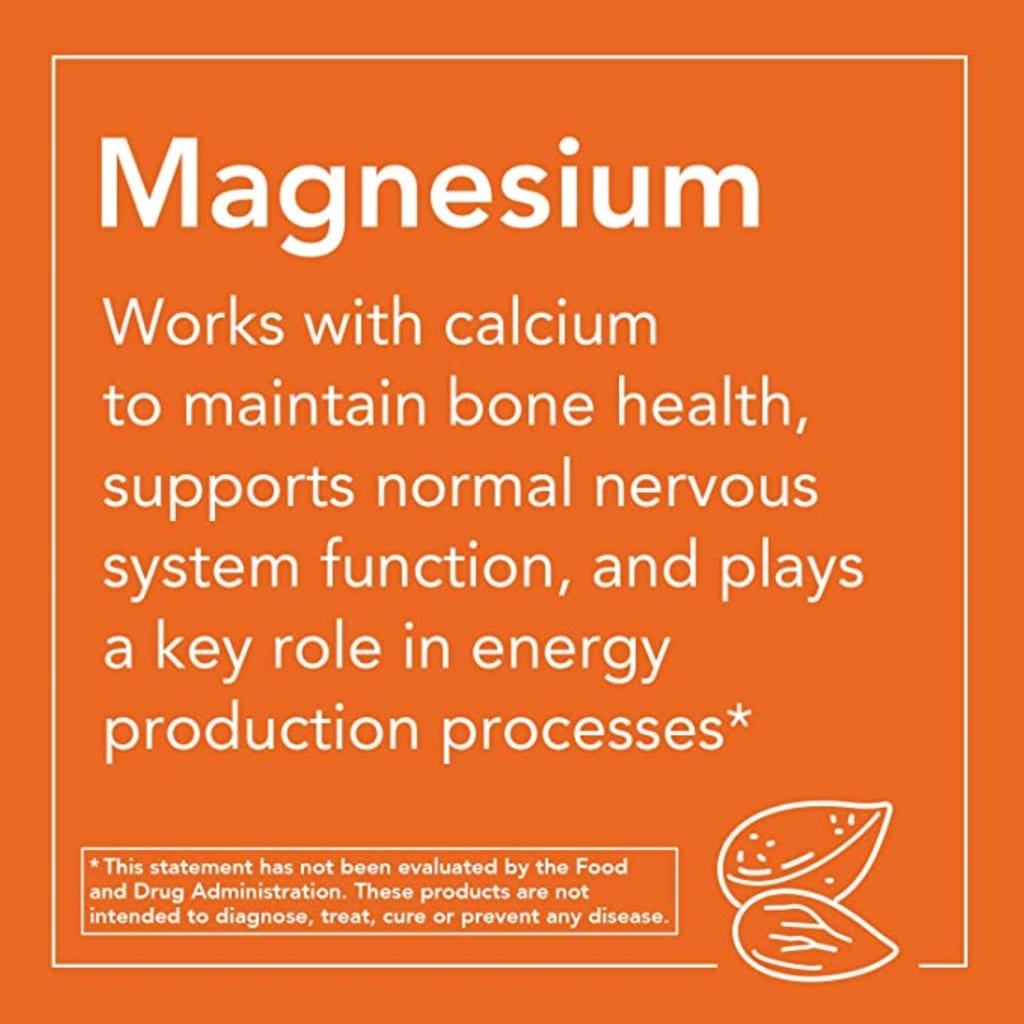Magnesium Citrate: Understanding its Benefits and Uses
"Maximizing Your Health with Magnesium Citrate"

Magnesium is an essential mineral that is responsible for hundreds of different bodily functions. Despite this, research shows that nearly two-thirds of the population in the western world does not achieve the recommended daily allowance for magnesium. Magnesium deficiency is believed to be one of the most prevalent nutrient deficiencies that affects adults, due to issues with absorption, poor soil quality, and a lack of fruits or vegetables in people’s diets. Magnesium citrate is one way to increase magnesium levels, especially since it has higher bioavailability than some other types of magnesium supplements.
One of the main uses of magnesium citrate is to help relieve constipation. Magnesium citrate pulls water into the intestines due to its chemical structure, which helps lubricate the gastrointestinal tract and soften stools, making it easier to pass a bowel movement. Magnesium citrate is commonly used for this purpose, and usually results in a bowel movement within 30 minutes to eight hours, depending on the type and dosage.
In addition to its ability to relieve constipation, magnesium citrate provides a wide range of health benefits. For instance, it can help prevent magnesium deficiency symptoms such as trouble sleeping, headaches, fatigue, and muscle aches or spasms. Magnesium is an electrolyte that is particularly important for the muscles and nerve cells, and using magnesium citrate may provide benefits like enhancing relaxation, increasing sleep quality, and helping with stress relief. It also can help fight muscle spasms, aches, and pains since magnesium helps contracted muscles relax.
Furthermore, magnesium citrate may help protect against kidney stones by decreasing accumulation of calcium. Calcium and magnesium work together to balance each other out, and magnesium may be able to decrease the buildup of calcium, thereby supporting good kidney health. Magnesium citrate also contributes to bone creation, as it regulates the transport of calcium across cell membranes. Our bones possess roughly 60 percent of the body’s magnesium.
Magnesium citrate is beneficial for cardiovascular health as well. Magnesium is an essential mineral for maintaining bone density, normal cardiac rhythmicity, pulmonary function, and healthy blood glucose levels. Having adequate levels is important for maintaining normal blood pressure and heartbeat rhythms, protecting against issues like hypertension and arrhythmia (irregular heartbeats). Magnesium citrate is commonly used to prevent irregular heartbeats. In addition, it works to make artery walls more flexible — stiff artery walls are an atherosclerosis risk and can contribute to cardiovascular issues.
The absorption rate and bioavailability of magnesium supplements differs depending on the kind you use. Research shows that usually types that dissolve in liquid are better absorbed in the gut than less soluble forms. Some research suggests that magnesium citrate, chelate, and chloride forms are typically absorbed better than magnesium supplements in oxide and magnesium sulfate forms.
Magnesium citrate is available in various forms. Magnesium citrate powder is a popular form of magnesium that is stirred into water or another fluid and taken for nutritional support. The powder is combined with water, which causes the two to bind together, creating “ionic magnesium citrate,” which is absorbed in the gastrointestinal tract. Other names for magnesium citrate can include Citrate of Magnesia or the brand name Citroma.
In conclusion, magnesium citrate is a type of magnesium supplement that is commonly used to maintain healthy magnesium levels, as well as to provide relief from constipation. It can help prevent magnesium deficiency symptoms, support muscle and nerve functions, protect against kidney stones, and promote cardiovascular and bone health. Magnesium citrate is available in various forms, and the absorption rate and bioavailability of magnesium.
Below are general recommendations for magnesium citrate:
About the Creator
abdelmajid bachar
Through my blog,I enjoy exploring other topics, such as personal development, travel, and culture. Overall, my goal as a blogger is to inform, inspire, and entertain my readers.





Comments
There are no comments for this story
Be the first to respond and start the conversation.